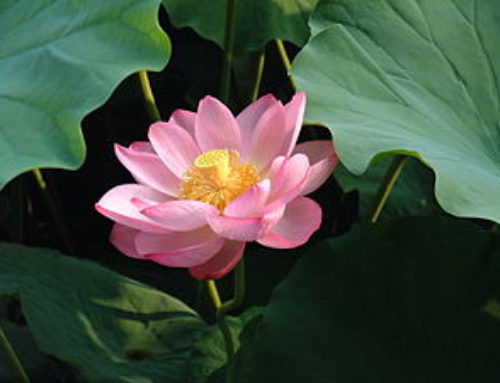Reading list for “What is a Man? zen retreat at Upaya
http://www.upaya.org/programs/event.php?id=372 What is a man? zen retreat MY READING LIST FOR MEN’S RETREAT May 14 – 16, 2010 Compiled by Ray Olson as Suggestions for Background Information for Teachers and Participants Loy, David, Money, Sex, War, and Karma: Notes for a Buddhist Revolution, Wisdom Publications, 2008. Loy supports strongly socially engaged Buddhism, which opens our awareness of social suffering, promoted by group-selves as well as by ego-selves. He describes the three collective poisons, institutionalized greed (consumerism), hatred (war) and delusion (advertising, public relations, and spin). What is a man to do? Loy stresses the importance of personal spiritual practice, a commitment to nonviolence, and a realization that ending our own suffering requires us to be concerned about the suffering of everyone else as well. Loy is Endowed Professor of Ethics, Religion and Society at Xavier University (Cincinnati). Matthew Fox, The Hidden Spirituality of Men: Ten Metaphors for Awakening the Sacred Masculine attempts to integrate all aspects of masculinity, going beyond traditional perceptions of what it means to be male, including what and how we eat, the male body, and sex and sexuality, building towards a reverence for the self and the planet as a means to connect with the divine within and without. In the tradition of Robert Bly, Fox accepts that men can and do have sides to them that are largely ignored and even mocked by popular media and mainstream culture and religion, and encourages men to explore those sides without emasculating themselves or others. Highly recommended for anyone (male or female) interested in more fully understanding the masculine side of spirituality and wishing to further develop those energies within themselves. Daida, David, The Way of the Superior Man: A Spiritual Guide to Mastering the Challenges of Women, Work and Sexual Desire, Sounds True, Inc., 1997, 2004. A guide for a specific kind of newly-evolving man. This man is unabashedly masculine – he is purposeful, confident and direct, living his chosen way of life with deep integrity and humor – and he is sensitive, spontaneous, and spiritually alive, with a heart-commitment to discovering and living his deepest truth. He is totally turned on by the feminine in people [regardless of gender – CRO]. Daida writes that all men have a mix of masculine and feminine in them, and that they may suppress one or the other. Fischer, Norman, Sailing Home: Using the Wisdom of Homer’s Odyssey to Navigate Life’s Perils and Pitfalls; Free Press (Simon and Schuster), 2008. In this book, Fischer guides us to understand our own spiritual odyssey, our own hard-earned, vulnerable, mysterious life journey, with genuine compassion and newfound understanding. Odysseus’s striving to overcome divine and earthly obstacles and to control his own impulsive nature holds valuable lessons for people facing their own metaphorical battles and everyday conflicts, people who are, like Odysseus, “heartsick on the open sea,” whether from dealing with daily skirmishes at the office or from fighting an international war. In his book Fischer points out the role of the god Mentes, from whom we derive our term “mentor”, an important role missing in our culture, as described by Moore and Gillette below. Fischer is a Senior Dharma Teacher and a former abbot of San Francisco Zen Center. Moore, Robert and Douglas Gillette, King, Warrior, Magician, Lover: Redicovering the Archetypes of the Mature Masculine. These authors, both Jungian therapists, posit that many, if not most, men enter their middle years life with a “boy psychology” rather than a “man psychology”, as boys who pretend to be men. The boy psychology is characterized by some mixture of behaviors that are tyrannical, bullying, manipulating, addicted, know-it-all, and mama’s boy. The authors attribute this fixation on both a lack of spiritual elders in our communities and the replacement in our culture of meaningful masculine ritual processes by empty ceremonies. The four behavioral archetypes of “man psychology”, the mature masculine, are those of the book’s title, which overlap and enrich each other. Somé, Malidoma Patrice, Of Water and the Spirit: Ritual, Magic, and Initiation in the life of an African Shaman, Penguin Books, 1994. Somé was born in a Dagara village, located in what is now the border between Burkina Faso and Ghana in Africa. Abducted by a Catholic priest at age 4, he was raised in a Catholic Seminary, destined to become an indigenous priest. At age 20, he revolted against his cruel cleric masters, escaped, found his way back to his village and people. There, under the guidance of a spiritual elder, he underwent a tribal initiation process. In this ritual, he and his co-initiates had to enter the jungle naked, without food or water. They had to live off the land. The initiates were warned that they risked losing their lives in this undertaking. Somé completed the initiation without mishap, and an elder told him, “You are now a man!” He returned with his co-initiates to their village and people to celebrate their triumph. Over the years he became a teacher, in the West as well as in Africa.
